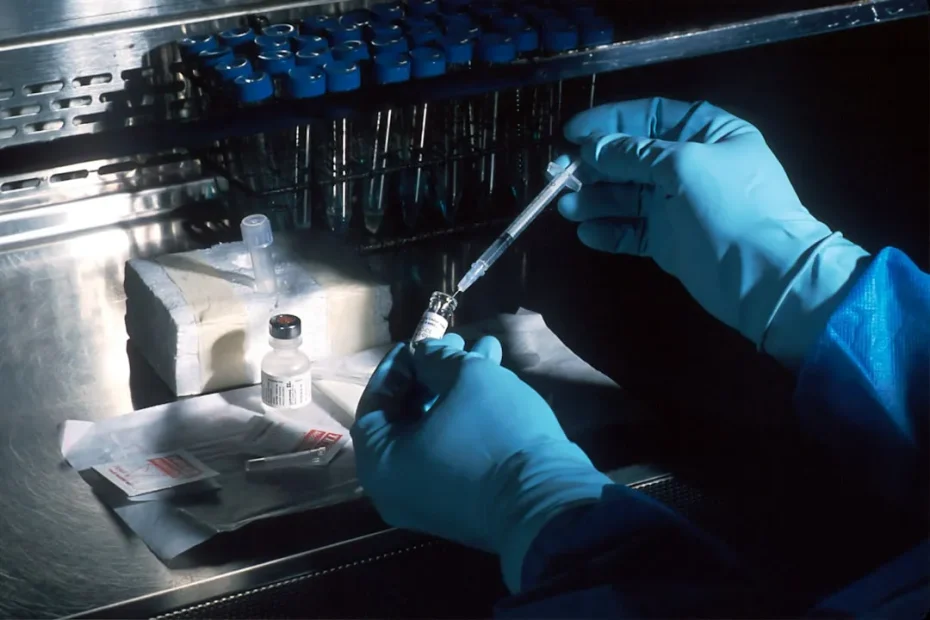Transitioning to an all-meat diet can provide tremendous health benefits, but also requires diligent tracking. Getting the right blood tests allows you to ensure your carnivore diet is optimizing your wellbeing.
Test fasting glucose, HbA1c, complete lipid profile with LDL particle size, hs-CRP, magnesium, vitamin D 25(OH)D, CBC, CMP, thyroid panel TSH, Free T3, Free T4 every 3-6 months to verify metabolic health on an all-meat carnivore diet.
As someone who has followed the carnivore diet for over a year, I cannot recommend blood testing enough. Quantifying how your body responds provides priceless insights and motivation.
However, most conventional blood panels focus on risk factors for the standard American diet. As carnivores, we rightfully question their relevance.
In this comprehensive guide, I share the essential blood biomarkers to track on a nose-to-tail carnivore diet. I also explain what each marker means, reference ranges to aim for, and ways to optimize them.
Why Blood Testing Matters on a Carnivore Diet
Getting blood tests while carnivore gives you objective data to understand the effect it’s having on your body. It can reveal positive changes like improved markers for metabolic health but also potential deficiencies that may require intervention.
Some key reasons to get blood tests on a carnivore diet include:
- Check for nutrient deficiencies since you omit all plant foods.
- Understanding changes to cholesterol, blood sugar, and other metabolic markers.
- Having a baseline in case you develop symptoms later on.
- Ensuring organs like your kidneys are functioning well on a high protein diet.
Key Blood Markers to Test on the Carnivore Diet
With an intelligent battery of blood tests, you can accurately assess the impact of an all-meat diet. I recommend testing the following either annually or every 6 months.
Metabolic Health Markers
- Fasting Glucose and HbA1c: These measure average blood sugar and insulin levels. Chronically elevated insulin hampers fat metabolism. On a well-formulated carnivore diet, fasting glucose and HbA1c decrease. Aim for fasting glucose <90 mg/dL and HbA1c <5.5%.
- Lipid Profile: Includes total cholesterol, HDL, LDL, triglycerides, and calculated LDL particle size. Contrary to outdated beliefs, higher total cholesterol and LDL on carnivore diets reflect improved metabolic health. Aim for triglycerides <150 mg/dL, HDL >40 mg/dL, and LDL particle size pattern A.
- hs-CRP: High-sensitivity C-reactive protein tracks systemic inflammation. Levels should plummet on a nose-to-tail carnivore diet as inflammation resolves. Aim for an hs-CRP of <1.0 mg/L.
Micronutrient Status Markers
- Magnesium: Low magnesium impedes vitamin D activation and negatively affects sleep, hormones, and digestion. Meat and water can provide sufficient magnesium but testing levels is prudent. Aim for a serum magnesium of 1.8-2.4 mg/dL.
- Vitamin D 25(OH)D: Low vitamin D is endemic yet impacts immunity, strength, and mood. Get plenty of fatty fish, organs, and sun exposure. Test both 25(OH)D and 1,25(OH)D for a complete picture. Aim for 25(OH)D of 40-60 ng/mL.
- CBC and CMP: Complete blood count and comprehensive metabolic panel measure white blood cell counts, liver enzymes, kidney function, electrolytes, and minerals like calcium, potassium,m, and iron. Helps spot potential deficiencies.
- Thyroid Panel – TSH, Free T3, Free T4: Carnivore diets can bolster thyroid function and resolve Hashimoto’s. Assess your levels to ensure proper metabolic signaling. Aim for TSH 0.5-2.0 uIU/mL and Free T3 & T4 in the upper half of the range.
Additional Tests to Consider
Beyond the essentials, a few other biomarkers provide useful insights:
Testosterone and estradiol: Help assess hormonal status. Aim for testosterone 600-900 ng/dL and estradiol 20-30 pg/mL.
Homocysteine: Amino acid linked to cardiovascular and cognitive decline. Levels below 10 μmol/L are ideal.
Insulin: Can reveal fasting hyperinsulinemia missed by glucose and HbA1c. Aim for <5 μIU/mL.
hs-CRP, CBC, CMP: Re-testing these every 3 months provides an in-depth look at the anti-inflammatory effects and verifies sustained metabolic health.
how to deal with offset biomarkers after your tests?
If certain biomarkers fall outside ideal ranges, employ these troubleshooting tips:
Lower glucose and HbA1c: Eliminate dairy and processed meats if included. Increase fatty meat intake. Lower protein to 1.5 grams per kg of lean mass.
Raise HDL: Eat more wild fatty fish and pastured egg yolks. Incorporate beef liver and cod liver oil.
Reduce triglycerides: Eliminate refined oils and rendered fats. Eat more wild-caught salmon and mackerel. Increase muscle meats versus fat trimmings.
Raise magnesium: Emphasize magnesium-rich meats like mackerel, beef kidneys, clams, and oysters. Consider 300-400 mg/day magnesium supplements.
Increase vitamin D: Eat more salmon roe, herring, pork liver, and wild fish. Get whole-body sun exposure. Supplement with 5000 IU/day of vitamin D3 if levels are still low.
Lower inflammation: Eliminate eggs and dairy if reacting. Remove rendered pork fat. Eat only quality pastured meats. Increase collagen intake.
When to Get Blood Tests on Carnivore
Timing your blood tests strategically provides the most useful data on how your body is reacting. Here are my recommended time frames:
- Before starting – Get baselines for comparison.
- After 3 months – Lets you see early impacts and make any needed adjustments.
- Every 6-12 months – Monitor long-term effects and nutrient status.
- If symptoms arise – Testing can uncover potential causes like low vitamin C.
As your health-focused coach, I suggest making blood tests part of your carnivore lifestyle. View them as guides that allow you to thrive on this bold nutritional approach. With the right biomarkers, you’ll feel empowered in your meat-only mission!
Finding a Carnivore-Friendly Doctor
Getting the right blood tests is only useful if you have a doctor who understands and supports your carnivore diet. Many conventional doctors have an outdated bias against higher fat and cholesterol. Seek out a functional or integrative medicine practitioner who embraces this approach.
Here are tips to find a suitable carnivore-friendly doctor:
- Ask in online carnivore communities for doctor recommendations in your area.
- Look for doctors trained in ancestral or paleo diets – they tend to be more open to carnivores.
- Interview potential doctors about their stance on high-fat and animal food diets.
- prioritize doctors who look at diet and lifestyle along with standard tests.
- Avoid doctors who dismiss your diet without listening to your experience.
Frequently Asked Questions
Should I fast before testing?
Yes, fast for 8-12 hours before tests like lipid panel, glucose, and insulin to get accurate baseline values unaffected by recent meals. Water, black coffee, and plain tea are okay.
How often should I get bloodwork on a carnivore diet?
Initially, every 3 months provides insights into how your body adapts metabolically. After your first year, testing every 6 months gives you ongoing confirmation.
Are cholesterol levels concerning on a carnivore diet?
No, total and LDL cholesterol naturally increase on animal-based diets to support hormones, cell membranes, and other crucial functions. Track HDL, triglycerides, and LDL particle size instead.
What causes high CRP on a carnivore diet?
Rendered pork fat, eggs, and dairy are potential triggers. Focus on quality pastured beef, wild fish, collagen, and eliminating food sensitivities. Lifestyle factors like sleep and stress also impact CRP.
Will a carnivore diet provide sufficient micronutrients?
Yes, if you eat plenty of organ meats like liver and brain, shellfish, fish eggs, and bone marrow. Optimizing vitamin D and magnesium requires some special attention. Overall, nutrient density is excellent.
Bottom line, intelligent blood testing both validates and optimizes your carnivore diet. Track the biomarkers covered here to make sure you achieve incredible health on an all-meat, plant-free diet. Consistent testing gives you priceless feedback and motivation to adhere to this transformative dietary approach.



